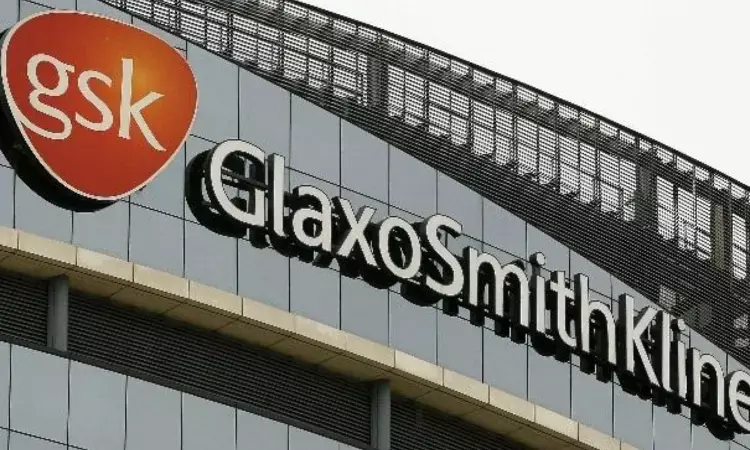- Home
- Medical news & Guidelines
- Anesthesiology
- Cardiology and CTVS
- Critical Care
- Dentistry
- Dermatology
- Diabetes and Endocrinology
- ENT
- Gastroenterology
- Medicine
- Nephrology
- Neurology
- Obstretics-Gynaecology
- Oncology
- Ophthalmology
- Orthopaedics
- Pediatrics-Neonatology
- Psychiatry
- Pulmonology
- Radiology
- Surgery
- Urology
- Laboratory Medicine
- Diet
- Nursing
- Paramedical
- Physiotherapy
- Health news
- Fact Check
- Bone Health Fact Check
- Brain Health Fact Check
- Cancer Related Fact Check
- Child Care Fact Check
- Dental and oral health fact check
- Diabetes and metabolic health fact check
- Diet and Nutrition Fact Check
- Eye and ENT Care Fact Check
- Fitness fact check
- Gut health fact check
- Heart health fact check
- Kidney health fact check
- Medical education fact check
- Men's health fact check
- Respiratory fact check
- Skin and hair care fact check
- Vaccine and Immunization fact check
- Women's health fact check
- AYUSH
- State News
- Andaman and Nicobar Islands
- Andhra Pradesh
- Arunachal Pradesh
- Assam
- Bihar
- Chandigarh
- Chattisgarh
- Dadra and Nagar Haveli
- Daman and Diu
- Delhi
- Goa
- Gujarat
- Haryana
- Himachal Pradesh
- Jammu & Kashmir
- Jharkhand
- Karnataka
- Kerala
- Ladakh
- Lakshadweep
- Madhya Pradesh
- Maharashtra
- Manipur
- Meghalaya
- Mizoram
- Nagaland
- Odisha
- Puducherry
- Punjab
- Rajasthan
- Sikkim
- Tamil Nadu
- Telangana
- Tripura
- Uttar Pradesh
- Uttrakhand
- West Bengal
- Medical Education
- Industry
GSK gets CDSCO panel okay to conduct study on antineoplastic drug Belantamab Mafadotin

New Delhi: In a significant development, GSK Pharmaceuticals ( India) has got approval from the Subject Expert Committee (SEC) of the Central Drug Standard Control Organization (CDSCO) to conduct the Phase 2a clinical trials for the antineoplastic agent Belantamab Mafodotin intravenous solution.
This nod came in line with the condition that the study sites must have an ophthalmologist as Co-Investigator or Sub-Investigator. Furthermore, the expert panel stated that in the event of an adverse event, the study participant(s) should be followed by the study eye doctor for the duration of the study or until the AE is resolved.
This came in the wake of the protocol presented by the drug major, GSK Pharmaceuticals, in the presence of an Ophthalmology expert, for the phase 2a clinical trials (DREAMM 14), study protocol no. 209628, version-01 dated 21st January 2022.
Belantamab Mafadotin is an antineoplastic agent used for the treatment of relapsed and refractory multiple myeloma. It works by slowing or stopping the growth of cancer cells. Belantamab Mafodotin is the latest advance in immunotherapy for multiple myeloma.
Multiple myeloma is a hematologic malignancy characterised by excessive clonal proliferation of plasma cells. The treatment of multiple myeloma presents a variety of unique challenges due to the complex molecular pathophysiology and incurable status of the disease at this time.
Belantamab Mafadotin is a humanised IgG1K monoclonal antibody against the B-cell maturation antigen (BCMA) conjugated with a cytotoxic agent, maleimidocaproyl monomethyl auristatin F (mm MMAF). The antibody-drug conjugate binds to BCMA on myeloma cell surfaces, causing cell cycle arrest and inducing antibody-dependent cellular cytotoxicity.
The medication is indicated for the treatment of adults with relapsed or refractory multiple myeloma who have received at least four prior treatments including an anti-CD38 monoclonal antibody, a proteasome inhibitor, and an immunomodulatory agent.
Also Read:Justify dose modification criteria for anti-cancer drug: Authority tells GSK
Belantamab Mafadotinwas granted FDA approval on August 5, 2020.
At the 120th SEC meeting for Oncology and Haematology, held at CDSCO on March 9th, 2022, the committee thoroughly examined the study protocol presented by GSK Pharmaceuticals Ltd.
After detailed deliberation, the committee recommended the grant of permission to conduct the study with the following conditions:
1) The study sites must have Ophthalmologist as Co-Investigator or Sub-Investigator.
2) In case of an adverse event, the study participant(s) should be followed up to full length or till the resolution of AE by the study Ophthalmologist.
Doctor of Pharmacy
Dr. Divya Colin, a Doctor of Pharmacy Graduate with extensive experience in clinical and hospital settings and confidently equipped with diagnostic and therapeutic skills. She also has spread out exposure to Oncology Departments in Mysore Medical College and Research Institute as Oncology Pharmacist. Currently she is building a career in clinical research and clinical data management. She has been a part of Medical Dialogue since January 2022.


